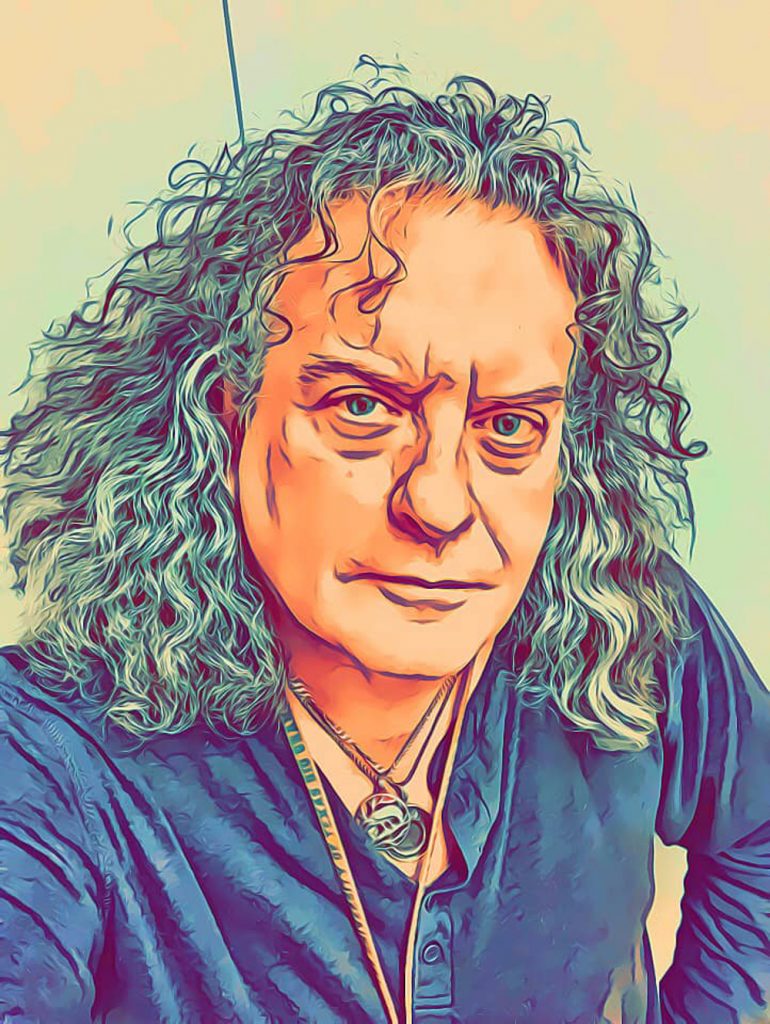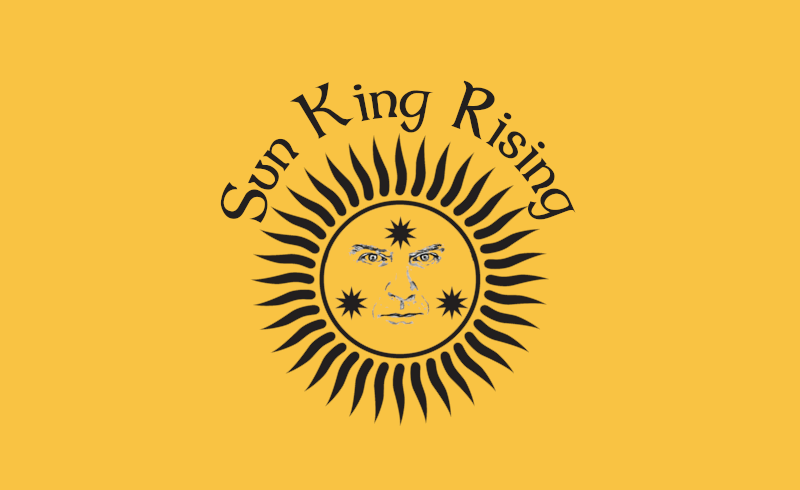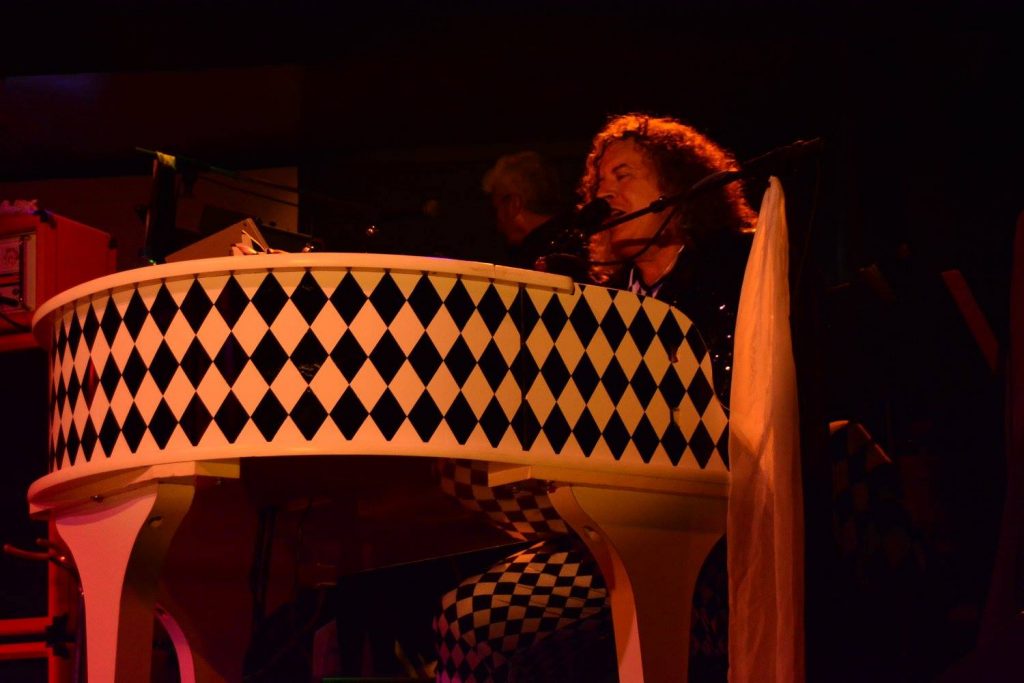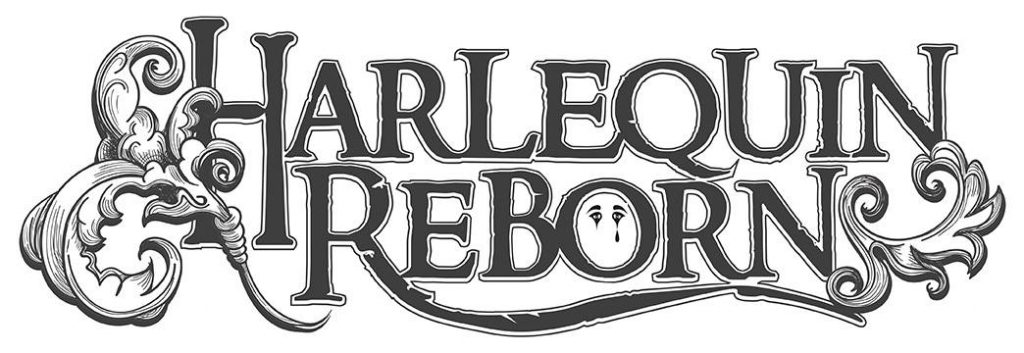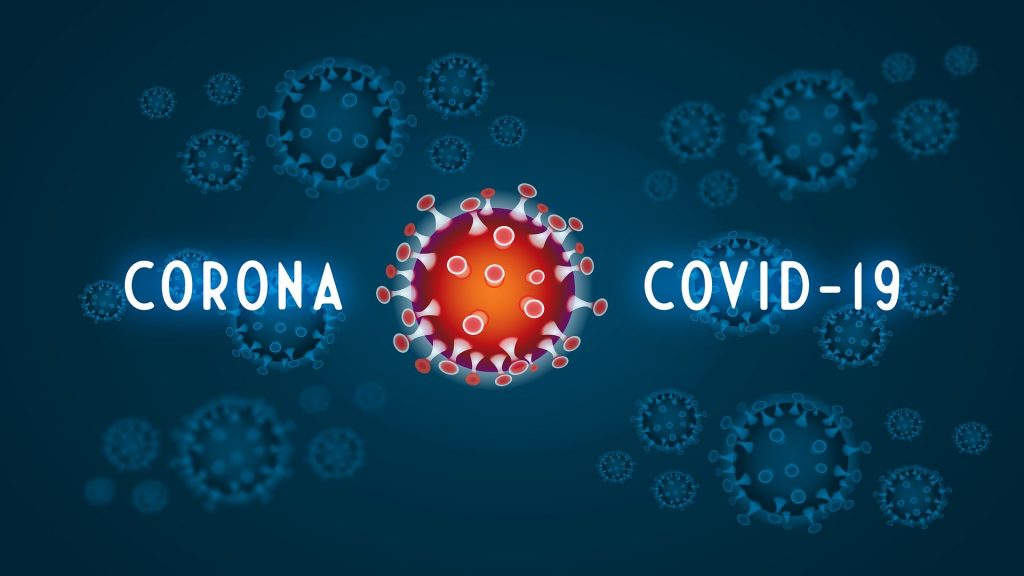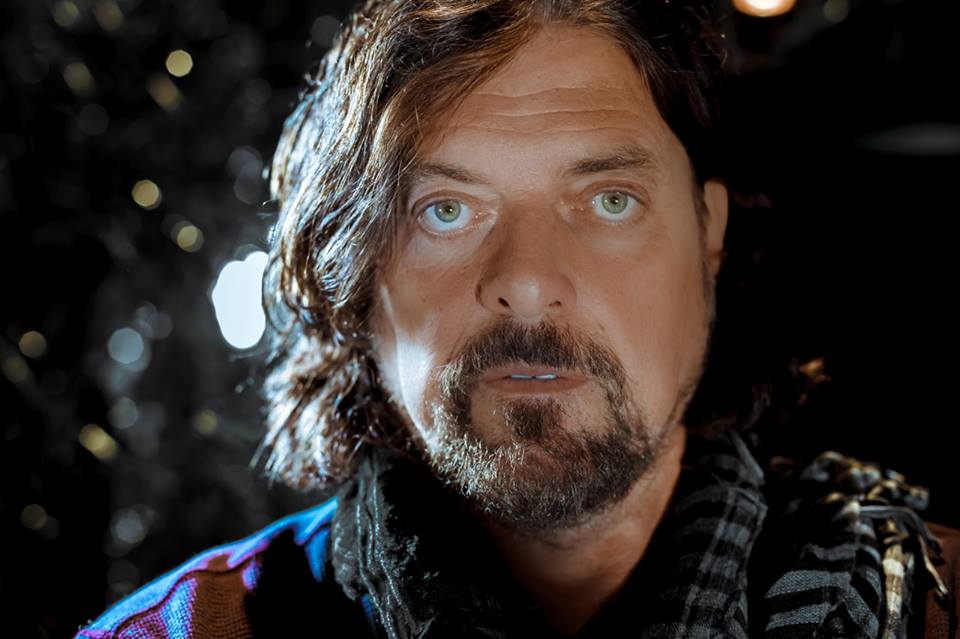Time Horizon Interview with Leading Man Ralph Otteson

Time Horizon’s leading man Ralph Otteson opens up during a recent interview about the birth of a band, Pandoras Box, the upcoming 3rd album, and everything in-between.
PoP:
Hello, Ralph thank you for doing this interview with us.
Ralph:
Absolutely! I am so glad to talk to you Thank you!
PoP:
You’re the founding member of Time Horizon a California-based Christian, Progressive Crossover AOR band How long have you been a professional musician, and what professional training have you had if any?
Ralph:
Well, first I wouldn’t consider myself “pro” because I support my family by working a day job in the high tech industry, but as far as my involvement with music, I would say I have a lot of years working part-time and I have been able to do a lot with limited time. I hope to do more than I have in the past.
PoP:
What is your role in Time Horizon and what instruments do you play?
Ralph:
I am the keyboardist and principal writer. I also sing background vocals. I think I am the driving force behind the band because I take on most of the responsibilities, so in a sense, I am the leader.
PoP:
Tell us about the birth of Time Horizon, how did that come about, and what does this band mean to you?
Ralph:
Time Horizon started because I had recorded an album with a band I was playing with. we wrote original music. The band was called Iron Clay Poets. We disbanded before finishing the album, but I wanted to finish it. The problem was I had recorded on ADAT digital tape system and could only do 16 tracks at a time for mixdown. I had about 30 tracks of music, so our then drummer knew another drummer that was also an engineer and had a computer system that I could mix it down with. That drummer ended up being the drummer for Time Horizon. He dug the music and after the mix, he wanted to jam on some of the songs….well, we ended up writing the first album.
PoP:
What was the defining moment in your life that sparked the eternal flames to become a musician, and was it a particular band or individual?
Ralph:
Well, my family are all musicians, we had an upright piano that I would mess around with it but never had any lessons. In 1977 I saw ELP – the Works Tour. The year before a friend played their record and I loved the sound of the synth. When I saw Keith do his thing, I said that’s what I want to do! mind you, I had not yet started playing. I took lessons in my Senior year and sold my car to by a Fender Rhodes piano so I could play in a band. I learned covers but found writing songs was what I enjoyed most.
PoP:
Your first release was released through your label Angelic Noise Records, what was the publics’ perception of the debut Living Water?
Ralph:
It was well-received. I started my label because there were a few labels interested in wanting to sign us, but things kind of went weird so I decided to form my label.
PoP:
Was Living Water a charity album?
Ralph:
I recorded the album with some friends, Bruce was the drummer and we recorded it at his studio. We had all but one song mixed and for several reasons, it sat for a year. it looked like the same thing was happening again with this band. Like before, I took it soon myself to finish it. I had gone to a Christian Men’s conference and saw an organization called Living Water International (LWI). I had lost my job and was feeling worried about how I was going to get by. I sold stock I had from my previous employer funded the album with the intent to give 100% of the sale from physical CDs to LWI to help people in the world that do not have even the most basic need….water. What do I have to complain about? So in a sense yes it was a charity album. I have not financially benefited from it. I considered it a Ministry. The album sales were okay and we were able to help a village in Ghana, Africa install a well, so I would call that a success.
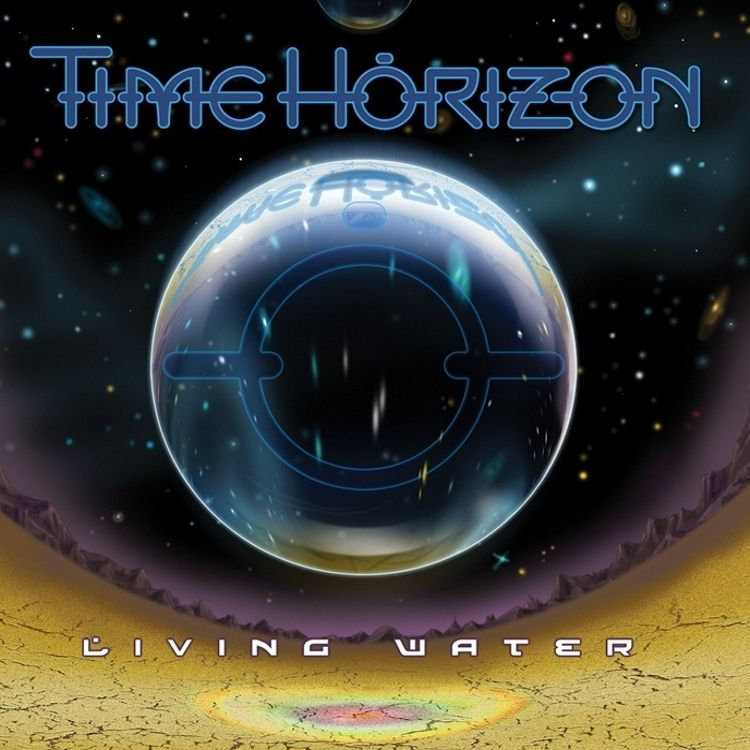
PoP:
Tell us about the concept/meaning behind the name of Living Water?
Ralph:
Well, the meaning of Living Water is what Jesus is to Christians. He said he can give living water that in us is welling into eternal life. So, along with the purpose behind the album project, it made sense to name the album that.
PoP:
What was the most defining moment of Living Water?
Ralph:
I think after we wrote the song Life Fantastic. The bass player at the time was Steve Gorley, an amazing musician that studied jazz and I wrote the riff that he just latched onto and would complement the line with some nice runs on the bass which I doubled on the synth. Bruce came up with a great melody and killer drums. after mixing that I sent it off to Randy George as he was putting together a compilation CD for Cprog or Christian Prog Rock. we released it as a single for the CPR3 album. That was great because we made friends which I still hold dear today. If you get a chance to hear it, it’s fantastic! Unitopia, Ted Leonard, and Phil Keaggy are just a few of the artists on that CD.
PoP:
Your sophomore album Transitions was released four years later in 2015, how was this different than your debut?

Ralph:
That album was called Transitions because it’s just that. Steve Gorley the original bassist traveled back to Cambodia to continue his humanitarian work there. He could have stayed here and rocked out with us, but he had a deeper calling and love for the oppressed and poor. He helped the street kids there, preventing child slave labor and trafficking. I found a replacement in Allen White who I played in a band within the ‘80s early ’90s. He fit right in. The original guitar player left and we got help in that area with Dave Miller. Bruce got about 1/2 way through and had to leave for personal reasons…Now I was down a drummer and a singer, so I recruited help from friends David Walliman, Lang Bliss, and a singer from the band Allen and I played with Rich Reif. I had Billy Sherwood mixing and helping me on post-production. So it is the transition to what Time Horizon is now. That album has a lot of great tunes on it. slightly different, but still maintaining a signature sound.

PoP:
You formed a partnership with Melodic Revolution Records for the second release, how did that come about and why was it so important for the follow up of Living Water?
Ralph:
I wrote a majority of the album, did the leg work in getting it finished, but realized I need help with promotion. I knew Nick Katona and noticed that he did a lot of albums for great causes. I felt we would work well together as I think we share that desire to help bless others through music in a real tangible way. I am a principal writer for the band, a dad and husband, I appreciate MRR and everything they do to help promote. I am not good at that, it’s difficult for me.
PoP:
What influences your songwriting lyrically and musically?
Ralph:
Great question. I have always loved prog music. Odd time Signatures, blending genres, and of course melody. The first bands for me were in the ‘70s really. ELP was what got me into prog, followed by Yes, then Genesis. I also loved rock like Toto, Queen, Boston, and the like. The ’80s brought me Saga which is a huge influence. Lyrically, I think Saga’s style but the Beatles and Rush. I know that’s all over the place, but my faith is something that is from my inner core, so it is expressed in lyrics. Sometimes more overtly, sometimes more subtle.
PoP:
You brought in some big guns for the production portion of the album, I am speaking of Billy Sherwood (Yes, Circa, World Trade) and Major Appelbaum (Nektar, Angra, Lana Lane) how did that come about and why was this essential to this releases?
Ralph:
Yeah, with Transitions album I wanted to raise the bar. I had contacted Billy Sherwood as I know he has worked with other bands. I sent him a demo of the song “Prisoner” which was a song written when I was on a band 180 with Allen W. Billy liked the tune and so I started a correspondence with him. because he worked with Tony Kaye in Circa, I asked if he could get Tony to play on it. You have no idea how cool it was for me to hear a Hammond organ from him. I had the Yes album on my turntable for weeks. I still can’t believe he is on Transitions. a huge thrill for me. Billy also played as we decided to do a cover of a World Trade song ” The Moment is Here” We changed some of the lyrics to fit our Christian world view and he was Ok with it. He also plays the lead guitar on the track so another cool thing.
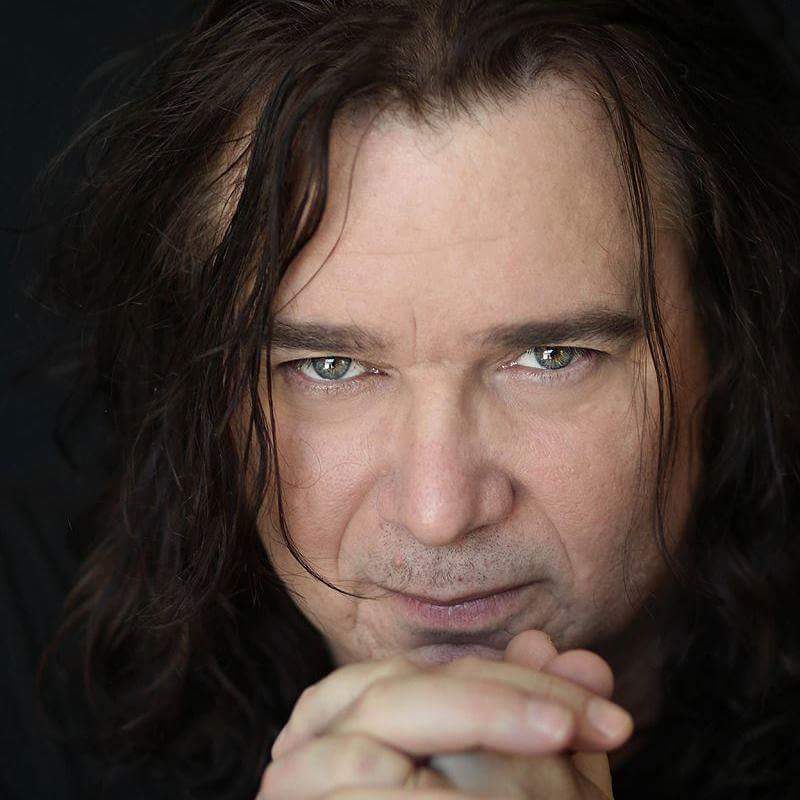
PoP:
Billy Sherwood also guested on the album along with David Wallimann, Lang Bliss, Tony Kaye, and Jake Livgren. What was it like to work with these musicians?
Ralph:
David Walliman is fantastic to work with, he would pump out these amazing guitar tracks in really fast. I used him first for the song Prisoner but found I kept turning to him for the next tune. It was hard not to. He does quality stuff in record time! Lang and I go back a long time. I knew him in the 80s. We had mutual musician friends and hung out jamming at times. He moved to Nashville and got on with a Christian record label there. He is quite the pro. He toured with Michael W. Smith who is a well-known gospel artist. He met his wife Renee who was a backup singer for Amy Grant. Together they write and produce talent. They released some songs that made the Billboard Top 10 last year. I finally met Tonybackstage after a Yes concert. He was super nice and remembered the song which I was glad! I got Jake to sing the last song after Rich was no longer available. It was on the suggestion of the artist Ken Westphal who did our album artwork. I originally was talking to John Elefante and asked him, but he declined, so Ken mentioned Jake while he sang in Proto-Kaw. Jake was great, I paid for a studio session in Topeka, Kansas and Jake said he would play on the album, his uncle Kerry Livgren (Proto-Kaw, Kansas) gave him the thumbs up so that’s good.
PoP:
From what we understand the long-awaited 3rd album is 99% complete, why has it taken so long to do another album?
Ralph:
Oh, man. We’ll all I can say is first….it’s worth the wait. When Bruce joined back with the band to tour the 2nd album, I said we need a frontman/vocalist. We spent time looking for and auditioning a singer. We were also down a guitar player/utility guy. It took a long time to find people that are up to playing this style of music. If they are good enough, it usually means they are not available. We got a call from a Sacramento-based singer David Mau who heard about us and thought he would be a great fit. He works with Brad Gillis from Night Ranger and Ozzy. He also worked with Derek Sherinian and loves prog! We started rehearsing and did a few shows, but again, had someone leave because of work. back to Square one. It is difficult to find people that want to do original music because there is not much money in it. It seems musicians have to play in Tribute bands to survive, which is kind of sad. All that said, we got some material from our new singer David Mau, once we got into writing mode, we just kept going. we did a lot of music and half of the next album is already done, so the fourth one should not be so long a wait. Could have done a double album, but…
PoP:
What’s the album called and why?
Ralph:
The new album is still having names considered. We just started the process of getting the artwork started so that might have an impact on the final name. We first thought about a song title, but then the concept of the album something in “3” for the third album. Time Horizon “cubed” maybe…I think it will be a surprise.
PoP:
Do you have the same line-up as Transitions?
Ralph:
The same lineup for the most part. Bruce G. on drums Bruce sings lead on one song, but Dave is the main guy for that role now. Myself on keys and vocals, Allen White on Bass again, Dave Miller on acoustic and rhythm electric. We had David Walliman do lead but guitar for a song, but that song is one we have decided to release on the next album. Both Bruce and Dave Mau had worked with a guitarist from Sacramento, Michael Gregory. Bruce played with him in the ’80s and Dave most recently. Michael G. was a sought after session musician in Nashville and was approached by Neal Morse to play with him. He was in the middle of finishing a degree so couldn’t do it, but that shows what his abilities are. The tracks by him have been Stellar! Overall this is the best line up to date. I am really excited about it.
PoP:
Is it true that Michael Sadler of Saga is doing vocals on a track on this album, what song and how did that come about?
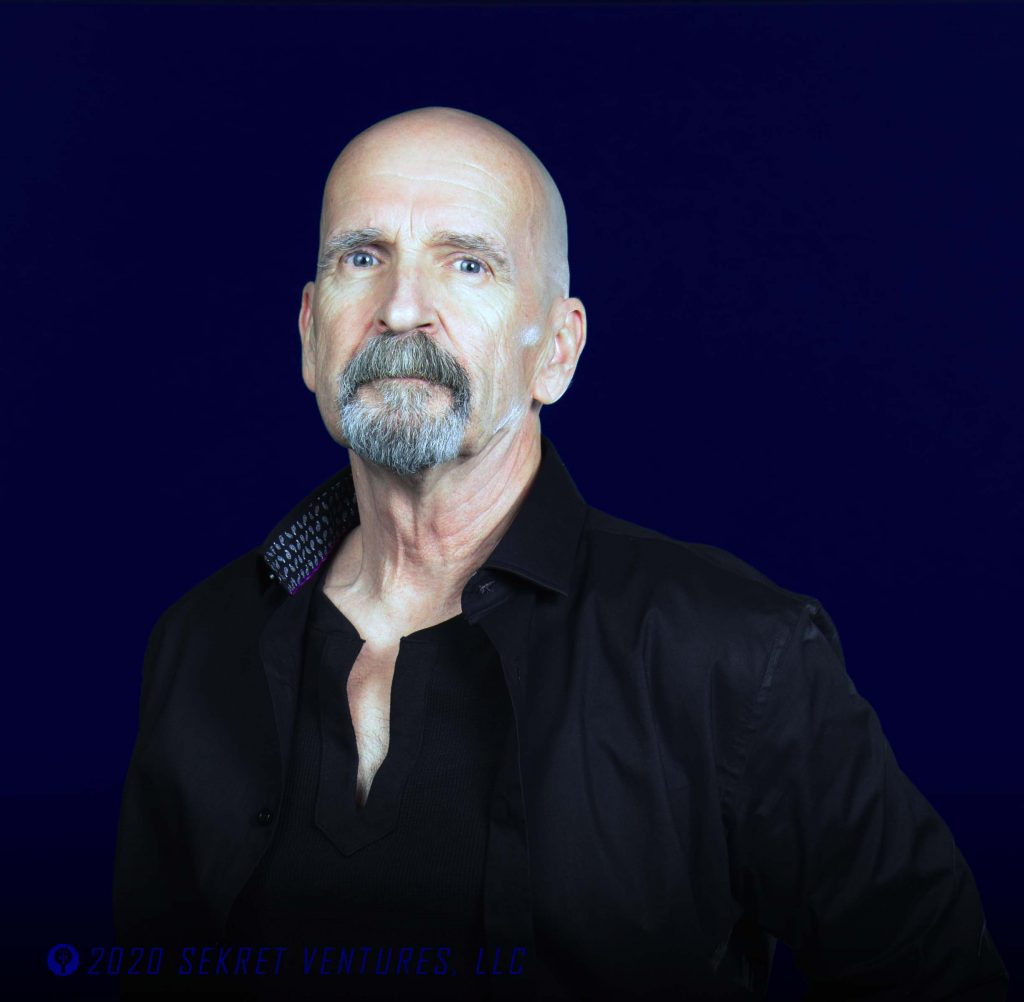
Ralph:
Yes, it is! I am super stoked to be able to say that! I have been a long time Saga fan! I met Michael once at Calprog in LA a few years ago. We sat down at lunch break and I was thrilled to talk with him. Later, he and I had a Skype meeting after the release of Transitions. I asked him then if he would be interested in guesting on our next release. He asked me to send him something and if he feels he can do it justice he would. It took me a long time after that writing quite a few songs before I felt I had one that he would fit right in. I intentionally tried to make it Saga-ish sound. He loved it and with his vocals, It sounds like something He would do, so I think mission accomplished!
PoP:
Do you have any other special guests appearing on this release, can you give us a hint?
Ralph:
The only other special guest is Michael Manring who plays fretless bass on a song in tribute to our first bassist Steve who recently passed We went to see Michael in concert as he was a favorite of Steve’s. It was the last time I saw my friend who helped start Time Horizon so …It seemed fitting and Michael was happy too. I love it as it is a very emotional piece for me. It still is hard for me not to tear up listening.







PoP:
How many tracks on the new album? Can you give us a song by song breakdown?
Ralph:
Yes, we have seven completed songs, still working on song order, they are in no particular order.
Living for a Better day…Saga like approach with a rock edge.
The Great Divide …..a hard-driving rock tune with prog influence.
Digital Us…..kind of Rush meets Pink Floyd maybe?
Steve”s song “It’s not goodbye”….instrumental with a new-age feel.
Razors Edge…..this is to me Spocks Beard meets Mike & the Mechanics.
I Hear, I see…….kind of more Toto like, this would be the more Top 40 hit.
Time to Wonder…..a ballad that has a Phil Collins approach. really beautiful tune.
PoP:
Who is the production team for the 3rd record?
Ralph:
We are going to do as much as we can to self-produce. We self-produced the first one, and we have even more experience between myself, Bruce, and David Mau to do this, but I think when you self-produce, it generally takes longer.
PoP:
Ken Westphal, who created the band-logo and the artwork for the first two albums has retired since Transitions, who will step up to the plate to continue making album art for great Time Horizon?

Ralph:
We have contacted Ed Unitsky and are in the process of starting the artwork. I think he is one of the go-to artists in the Prog community. He does really good work.
PoP:
We hear this album will be released in many formats including vinyl, can you tell us what prompted you to press wax on this one?
Ralph:
2 reasons. First, Vinyl is cool, I miss it! It has a vibe, and it’s becoming more popular as a medium to listen to again. We will still have CDs as well. Second, I like the shorter length. Back in the day, bands were releasing albums on a more regular basis partly because instead of having a 74-minute album every few years 45 min is a great length. I mentioned the fourth release is in the wings and about half-finished already.
PoP:
Do you collect vinyl yourself?
Ralph:
I have my collection from years ago still. I have a lot of original LPs. I think the millennials are discovering how great the music was years ago because of the rise in vinyl popularity again….which is very cool. I do have my wish list of albums.
PoP:
Name 10 albums that should be part of any serious record collection?
Ralph:
Wow, that’s a great question! Let me think hmm…I think a mix of styles and genres is important. I have Classical, Jazz, Rock some R&B and some newer Country. Works I have from, Chic Corea to The Fixx. Gino Vanelli to Jean Michel Jare, but here is a list of favorites
1) The Yes Album…Yes
2) And then there were Three…Genesis
3) Works…ELP
4) Abbey Road…Beatles
5) Toto… .the first one
6) World’s Apart…Saga
7) V ….Spock’s Beard
8) The Vigil …Kemper Krabb (worship)
9) More Power to Ya…Petra
10) Boston……the first one
…can I add the next Time Horizon to the list Ha, ha!
PoP:
Describe what success means to you, as a person, not a musician?
Ralph:
Success to me is loving what you do, knowing you are valued and matter in God’s eyes, knowing how to Love God in all things, and knowing how to love others. It’s not found in money or recognition. Maybe that sounds sappy to some, but I think it is true.
PoP:
2020 devastated the global community in many ways, how has 2020 affected you personally and the band?
Ralph:
Thankfully I can design circuit boards for income, I can do that remotely, so that helps. The other guys are retired or work at home as well. Bruce is an automotive mechanic so he can bring in non-music related income. Sometimes it helps to have additional skills.
PoP:
What were your plans for 2020 before the pandemic hit and do you plan to resume these plans at some point?
Ralph:
We had started recording before the pandemic. There had also been family emergencies that band members became unavailable for some time, so they slowed things as well. We are also trying to find a booking agent, but again it is Tribute and Top 40 bands they want. Hopefully, we can find help in that area once this pandemic subsides.
PoP:
Have you ever considered releasing a solo album?
Ralph:
Yes, actually. I have a lot of musical ideas that I want to develop. they are just phrases and pieces, but that is how all the material I have contributed starts out as. the songs take on their own life and write themselves. I would love to work with other musicians and put together something very proggy. I tend to be the more Prog head in the band. I would also like to do a worship album.
PoP:
What makes a song stand the test of time such as The Beatles’ Let It Be?
Ralph:
Funny you mention the Beatles. That was one of my album choices. The Beatles are timeless I think because the songs have melodies that you can remember. They are creative and appear simple, but when you analyze what the cord structure is doing, it’s genius.
PoP:
Do you see value in streaming services such as Spotify and YouTube for example?
Ralph:
Hmmm, To me, it is bittersweet. What a nice convenience it is. The problem is how it is hurting the artist financially. The royalties paid are very, very small. I mean, you have to have 100’s of thousands and maybe millions of streams per song to see actual viable income from that. The music industry has changed. I am thankful that I have sources of income to provide for my family, on the other hand, Time Horizon is on those platforms and I hope people use that as well as physical merchandise. That is still how artists keep going. Everyone said…well you just have to play concerts and sell out venues…. .um hmmm… ok, now what?
PoP:
What’s been the most memorable time in your music career thus far?
Ralph:
The very first time I heard a song I recorded playing on the radio in my car. Back in the ’80s, I was in a band with Allen and we were featured on local F M radio shows and College radio as well. I was driving in my car and listening to the local station when I heard a song I was on….big big smile! I think the second was being able to work with musicians that I looked up to Billy and Michael Sadler and Michael Manring come to mind.
PoP:
Let’s say I asked you to describe your musical style as if you were a painter. How would you describe your music pallet using vivid colors?
Ralph:
I think I paint with blended colors like watercolors can bleed from blue to green to yellow. You can see those colors, but the color between them is really interesting. The music I do is different from song to song, but still maintaining a recognizable sound.
PoP:
If you could put one thing back into Pandoras Box what would it be?
Ralph:
Nothing. I think we have to work with what we are given. I think it’s all about what we do with it.
PoP:
If you could perform anywhere in the world, where would it be and who would be your warm-up act, or co-headliner?
Ralph:
I would love to tour Europe. It is where most of our album sales are, so maybe would have more people interested in seeing us play. I think we would be a good warm-up band for Neal Morse band, but he plays three-hour shows, so that isn’t gonna happen. Bands like Life Signs from England has a similar sound also Mystery from Canada. I think if we have enough material to do a 2-hour set so, a co-headliner would also be possible.
How has the music landscape changed since you have become a professional musician?
Ralph:
I started writing songs as I learned how to play my instrument. I was in the studio at 19 and playing clubs circuit by 21. It was a vibrant time. Original bands were found everywhere. The radio would play local bands. Now every radio station is owned by a handful of companies. the club scene is a small remnant. People were not afraid to pay to go check out bands. Usually, you heard of the headliner but often I liked the opener or support band more.
PoP:
Did MTV or the internet kill the radio star?
Ralph:
Yes and No. Yes, it killed the radio for the most part, but the internet opened great opportunities to find new music. I still find new music from artists I never heard of. Time Horizon has fans in Europe, Asia, and South America. That is still mind-boggling to me. They would not have me without it.
PoP:
People often say that music is dead because no good music is still being produced, is that true?
Ralph:
Music is not dead, the bands are there, but they are crippled in some areas. I think modern pop music is cookie cutter. There are just a few songwriters providing for the stars to perform. That’s why the songs all sound alike. If you turn on the radio, you will find Country, R&B / Rap, and Gospel. The only rock is classic rock. When was the last rock song you heard on FM? I hear new rock and prog on the internet all the time.
PoP:
What is the best advice you’ve been given professionally?
Ralph:
As far as music composition, What you don’t play is just as or more important than what notes you choose to play. For bands, tour, tour, and tour some more. I am still trying to get the second advice into motion.
PoP:
What advice would you give to the next generation of future musicians?
Ralph:
Don’t be afraid to experiment. Don’t be afraid to be different. Learn from older music and listen to all genres. There are things to learn from every style And whatever music you do, do it with conviction. Be honest with it.
PoP:
Where can people get information about the band and purchase Time Horizon’s music?
Ralph:
Well, Time Horizon Website, and a Facebook page that gets updated more than the website ( Not as much as it should) but it is probably the best way to follow current news. The Angelic Noise record label was the band’s store, it has closed for now so our Bandcamp Store, and Melodic Revolution Records. You can find us at all the other Outlets like iTunes, Tidal, Spotify, YouTube, and the like. I think there will be another store set up from the band website in the near future.
PoP:
Have you ever thought about being something other than a musician?
Ralph:
Originally I thought I would be an illustrator, I studied for a couple of years in college but realized if I want to be a good illustrator, I would need to lay down the music. I couldn’t do it, so I played down my brushes, got a job to buy keyboards, and start a great original band. I did not regret that decision and still feel the same today.
PoP:
Do you have a mailing list where fans and voyeurs of information can sign up too?
Ralph:
I had a mailing list with angelicnoise.com, but that website is debunked at the moment. I am okay for people to reach out to me personally. I will be looking over the mailing list I have to let those that have ordered past albums can get involved with this new project. Give a like to the Time Horizon fan page and follow us there and at MRR.
PoP:
In closing I want to thank you for taking the time to do this interview with us, do you have anything that you would like people to know that we did not talk about?
Ralph:
Well, yeah I just want people to know that I appreciate the support we have received and, I am doing my best to fulfill the expectations of an artist. I hope that I can do more and more. I hope you see improvement as I am always striving to be better at this. I do fall short in the promotion area, I have never been one to point attention to myself, which when you are a music artist you have to do. I feel uncomfortable saying….hey look at me!.. But, please hang in there as I will be trying to update more and all I have to say is I am excited as to what Time Horizon is doing.
PoP:
Thank you again for taking time out of your busy schedule for this interview.
Ralph:
It was truly my pleasure and I enjoyed answering these questions, which I might add were brilliant! You are for sure gifted in this area.
Time Horizon Band
Ralph Otteson: Keyboards, background vocals
Bruce Gaetke: Drums, lead and background vocals
Allen White: Electric and acoustic bass
David Miller: Electric and acoustic guitars
David Mau: Lead Vocals and support keys
Contributing musician Michael Gregory: Lead electric guitar
Time Horizon Online
Website: http://www.timehorizonmusic.com
Facebook: https://www.facebook.com/TimeHorizon/
MRR Profile: https://mrrmusic.com/project/time-horizon/
Time Horizon Bandcamp Store
https://timehorizon.bandcamp.com

